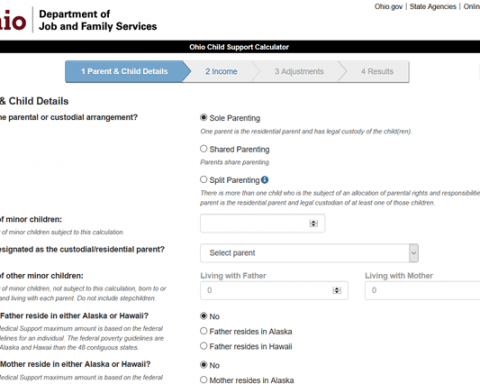Writing a parenting plan is an activity that should involve both parents. To create the parenting plan, the parents should mutually agree on a few strategies for the sake of their child’s protection from their divorce or separation.
Parenting plans can also be executed by the court in cases where the parents cannot come to an agreement. According to this book, the main goals of a parenting plan are to shield the child from any conflicts that may exist and to make it possible for both parents to care for the child as required.
Also, read more on this site
- What is A Parenting Plan?
- What to Include in a Parenting Plan?
- How to File a Parenting Plan in Washington State?
Most parenting plans have templates that parents can just fill out, or parents can come up with their own written proposal with which they both agree.
Parenting Plan Checklist
When writing a parenting plan, there are specific things that should be included. It should focus on the child’s well-being as much as possible, and it should be doable for both parents.
- Custody and visitation. Specify how both parents are involved in the care of the child. Decide who the child should live with as the primary caregiver or opt for joint custody. Also, parents should determine how, where, and when to exchange the child. Come up with a schedule covering normal days, school days, holidays, and vacations. Special occasions, such as birthdays and days when the child is unwell, should be accounted for in the plan.
- Daily routines and activities for the child. Write down rules to govern how the parents will communicate with each other and with the child. Outline who will select activities for the child and who will attend to the child’s events. The child’s routines and activities should not change because of the parents’ separation. Rather, the parents should strive to adjust their schedules to fit the child’s.
- Parents’ financial responsibilities. Agree on a mutual support system for the child. The noncustodial parent should agree to give a certain amount of money to assist with the child’s expenses. Outline procedures for everyday and occasional expenditures related to the child and set financial limits. Do not forget to include rules regarding large expenditures.
- Important decisions. Sort out important issues and make decisions now that will better the child’s growth and development. Set boundaries to protect the child from harmful habits, such as drinking and smoking. Establish rules and disciplinary measures for the child. Discuss issues such as the child’s internet use and exposure and what to do when the child goes out unsupervised. Address sensitive issues where the parents’ opinions may especially differ, such as culture and religion and the child’s schooling and education. Determine who will attend to the child’s medical needs and who will handle major decisions in the future.
- Put in writing. If the parents agree to the terms of the parenting plan, they should sign a written document in confirmation. If the parents cannot reach an agreement, amend the plan or go to court for mediation. Be flexible with amendments, and make sure that both parents and the child are included in the process.
How to Write a Parenting Plan for Court
Most courts will advocate for the parents to draft their own parenting plan since the parents best understand their schedules and their flexibility. All clauses in the plan need to be agreeable to both parents for it to remain effective. If the parents agree to a plan, they should sign their plan and proceed to court to make it legal and official.
In the event the parents disagree, the court will advise them to attend mediation sessions in an attempt to come to an agreement. The parents might also be encouraged to attend parenting classes or counseling sessions. If all of these options fail, the court will issue its own parenting plan to which both parents must comply.
Parenting Plan Features
Make sure that, in addition to the above, the parenting plan also features the following:
- Decision-making. Determine whether decisions will be handled by one particular parent or by both parents.
- Child information. Decide how both parents will share information about the child, what information to share, and which methods to use.
- Other parenting issues. Agree on how other parenting issues will be handled. For instance, establish procedures for when the child goes out unsupervised with third parties like relatives and friends.
- Child-support. Get assistance from an attorney to determine how much each parent will contribute to child support.
- Future changes. Include a clause for future amendments to the plan to address unforeseen circumstances, such as relocation, incapacitation of either parent, etc.
Conclusion
Most parenting plans are successful if they include the aforementioned rules. However, some parenting plans may require adjustments either by the parents or the court (in cases of disagreement). Parenting plans are the best way for parents to move on with their lives but still be there for their children.
This book says effective parenting plans actually benefit the children more and help reduce parental conflicts. That said, parenting plans should be as flexible as possible. This will help children cope faster and prevent any imminent parental conflicts. Divorce is a trying period for everyone involved. Parenting plans are meant to help the process run as smoothly as possible for both the children and the parents.
References
- Drozd, Leslie, Michael Saini, and Nancy Olesen, eds. Parenting Plan Evaluations: Applied Research for the Family Court, 2nd ed. New York: Oxford University Press, 2016. Retrieved from https://global.oup.com/academic
- Evans, F. Barton, and Benjamin M. Schutz. “The Rorschach in Child Custody and Parenting Plan Evaluations: A New Conceptualization.” In The Handbook of Forensic Rorschach Assessment. Edited by Carl B. Gacono and F. Barton Evans, 233–254. New York: Routledge, 2008. Retrieved from https://www.taylorfrancis.com/books













[…] A pre-determined parenting plan is essential as this helps in keeping consistency. It will also ensure that all parties have equal opportunities in the life of their kids. To make the document authentic, the parties might decide to look for the services of an advocate or lawyer to make the document legit by law. Going against the schedule should warrant a penalty. How to write a parental plan […]